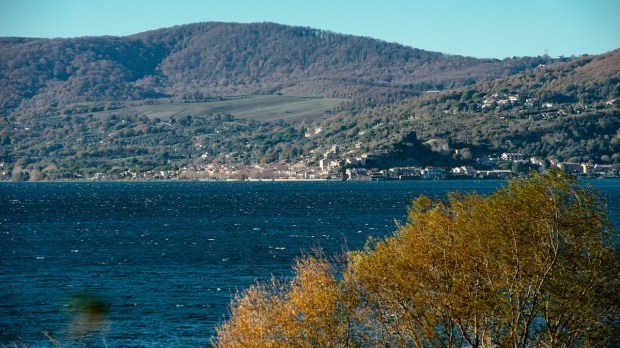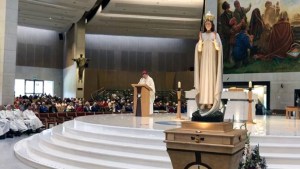Lenten Campaign 2025
This content is free of charge, as are all our articles.
Support us with a donation that is tax-deductible and enable us to continue to reach millions of readers.
The Church has found that the alleged “apparitions of Trevignano Romano,” close to Rome, are unfounded. After a nine-month investigation, the local bishop of the Diocese of Civita Castellana, Marco Salvi, issued a decree on March 6, 2024, stating that the phenomenon did not have a supernatural character.
Since 2016 in Trevignano Romano, on the shores of Lake Bracciano around 37 miles (60km) north of Rome, an alleged visionary, Gisella Cardia – whose real name is Maria Giuseppa Scarpulla – has been gathering hundreds of devotees around her. On the 3rd of every month they would all come to a hill in the Italian countryside for an alleged Marian “apparition.” Suspected of fraud, among other things, this Italian woman has made headlines in recent months.
In a six-page text, a copy of which has been sent to the Vatican’s Dicastery for the Doctrine of the Faith, Bishop Salvi, declared a “non-supernaturalitate,” meaning the situation in question does not have a supernatural dimension.
The investigation
Noting an “extremely confused” situation and a “general dismay” in his diocese surrounding this phenomenon, Bishop Salvi had launched an investigation in April 2023. A commission of theologians, canonists, and psychologists delivered its initial conclusions on the following May 30, and its final report in January 2024.
During the investigation, Gisella Cardia underwent a psychological examination with a team of five experts. The commission of inquiry established “contradictions” in her testimony, highlighted “inconsistency” between her statements and those of her husband, Gianni, or others involved, and concluded that Cardia was “unreliable.”
The experts also noted that Cardia’s “messages” were critical of the Church as an institution and created “division” among Catholics. Additionally the commission pointed to “numerous theological errors” in her messages.
As a result, Bishop Salvi ordered the faithful to refrain from participating in the events surrounding these false apparitions. He forbids priests from celebrating the sacraments or presiding over acts of popular piety linked to the “Madonna of Trevignano ETS” association, or to visit the “apparition” sites.
Bishop Salvi also required that Cardia and her husband respect his episcopal decision, and affirmed that the title “Madonna of Trevignano” – invoked by followers of this phenomenon – has “no ecclesiastical value.”


